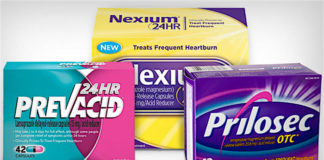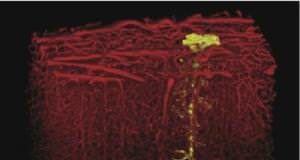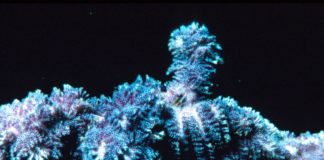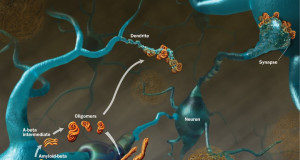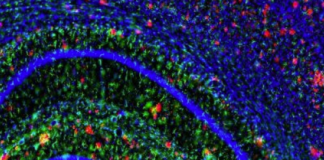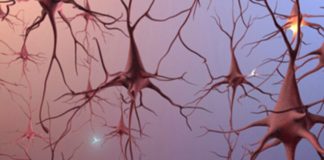Should We All Take a Bit of Lithium? (New York Times...
The idea of putting a mind-altering drug in the drinking water is the stuff of sci-fi, terrorist plots and totalitarian governments. Considering the outcry...
Researchers Discover Underlying Neurochemical Imbalance Responsible for Schizophrenia
Using human induced pluripotent stem cells (hiPSCs), researchers at Skaggs School of Pharmacy and Pharmaceutical Sciences at University of California, San Diego have discovered...
Heartburn and Stomach Acid Drugs Linked to Increased Risk of Dementia
Millions of people around the world use acid suppressants called proton pump inhibitors for conditions like heartburn, gastritis and stomach ulcers. Researchers at Karolinska...
Even The Smallest Stroke Can Damage Brain Tissue And Impair Cognitive...
Blocking a single tiny blood vessel in the brain can harm neural tissue and even alter behavior, a new study from the University of California, San Diego has shown. But these consequences can be mitigated by a drug already in use, suggesting treatment that could slow the progress of dementia associated with cumulative damage to miniscule blood vessels that feed brain cells.
The team reports their results in the Dec. 16 advance online edition of Nature Neuroscience.
Translating Nature’s Library Yields Drug Leads for AIDS, Cancer, Alzheimer’s Disease
An ingredient, prostratin, derived from a medicinal tea traditionally brewed from tree bark by tribal healers on the South Pacific island of Samoa is...
Higher Coffee Intake Linked to Lower Alzheimer’s Disease Rates
Hope you're enjoying your morning coffee - especially if you’re an older adult. A recent study monitoring the memory and thinking processes of people...
Hardening of Arteries Linked to Plaques in Brain
Even for elderly people with no signs of dementia, those with hardening of the arteries are more likely to also have the beta-amyloid plaques...
Chinese Medicine Offers New Parkinson’s Treatments
A hooked herb, root extract and a dash of bark – it may sound like a witches' brew, but these compounds could provide treatments for diseases that have so far foiled western doctors, such as Parkinson's and irritable bowel syndrome. For over 2000 years Chinese doctors have treated "the shakes" – now known as Parkinson's disease – with gou teng, a herb with hook-like branches.
Common Antidepressant Slows Alzheimer’s Disease, Lowers Production of Amyloid Beta
A commonly prescribed antidepressant can reduce production of the main ingredient in Alzheimer's brain plaques, according to new research at Washington University School of...
Strawberry Compound Reduces Symptoms of Diabetes and Alzheimer’s Related Memory Loss
Ongoing investigations conducted in the Salk Institute's Cellular Neurobiology Laboratory (CNL) have shown that fisetin, a naturally-occurring antioxidant flavonoid found in fruits and vegetables such...
High Blood Caffeine Levels In Older Adults Linked To Avoidance Of...
Those cups of coffee that you drink every day to keep alert appear to have an extra perk -- especially if you're an older adult. A recent study monitoring the memory and thinking processes of people older than 65 found that all those with higher blood caffeine levels avoided the onset of Alzheimer's disease in the two-to-four years of study follow-up. Moreover, coffee appeared to be the major or only source of caffeine for these individuals.
UCLA Study Points to Iron as Cause of Alzheimer’s Disease
Alzheimer's disease has proven to be a difficult enemy to defeat. After all, aging is the No. 1 risk factor for the disorder, and...













